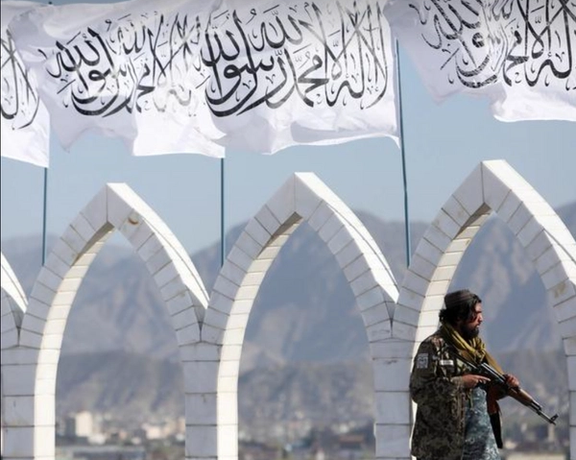The Psychological Imprints of Oppressive Regimes

When an oppressive regime, such as the Taliban, exerts control over a society, it leaves an indelible mark not just on the political landscape, but on the collective psyche of its citizens.

When an oppressive regime, such as the Taliban, exerts control over a society, it leaves an indelible mark not just on the political landscape, but on the collective psyche of its citizens.
This transformation is deep and multifaceted, with effects permeating individual perceptions, communal interactions, and the broader cultural ethos of the nation.
Central to a regime's power is its ability to control the narrative, which extends far beyond mere propaganda. Consider the stark implications of restricting education for females and girls. Beyond the immediate educational deprivation, this act communicates a woman's prescribed place in society. When young girls internalise such notions, it doesn't merely limit their aspirations; it fundamentally alters their self-concept. Project this over an entire generation, and we're potentially looking at a collective female psyche that views itself through the lens of perceived inferiority, with far-reaching consequences for societal dynamics.
The curricula within schools under the Taliban is not merely content—it's an instrument for shaping worldviews. By embedding skewed historical narratives and religious interpretations, young minds are conditioned with cognitive biases. Once established, these biases act as formidable barriers against alternative viewpoints. Over time, they insulate society, fostering a homogenised perspective that is resilient to external influences.
Moreover, living under the persistent shadow of surveillance, where dissent may lead to dire consequences, creates an omnipresent stress trigger. Chronic exposure to such environments can instigate a collective form of trauma, with communities in perpetual states of hypervigilance and anxiety. This isn't a fleeting state; such trauma can embed itself in societal interactions, altering community dynamics and eroding social trust for generations.
The Taliban's weaponisation of religion introduces another layer of psychological complexity. When faced with an extremist interpretation enforced as dogma, individuals undergo a profound internal conflict. This cognitive dissonance, where personal beliefs clash with imposed tenets, can fracture personal identities. The emotional distress ensuing from such internal turmoil can sometimes lead individuals to cling even more rigidly to extremist views, paradoxically seeking solace in the very source of their conflict.
The indoctrination of young minds in madrasas is particularly concerning, given that the formative years play a pivotal role in shaping an individual's world view. Exposure to extremist ideologies during this crucial phase can lay the foundation for a lifetime of unwavering beliefs. The Taliban's strategic approach to radicalising the young generation not only ensures a steady influx of loyal fighters, but also embeds their extremist views deeply within the social fabric. Over the long term, this can lead to a population that is less receptive to alternative perspectives, resistant to change, and more prone to sectarianism.
However, one of the most intriguing paradoxes within the scope of oppressive regimes is their inadvertent role in nurturing the very seeds of resistance they wish to obliterate. Philosophers throughout history have meditated on the nature of human freedom and agency. Existentialists like Jean-Paul Sartre proposed that the essence of human existence is freedom; to live authentically is to act in defiance of external determinants, to carve out one's own essence in a universe devoid of predetermined meaning.
Existential freedom becomes particularly poignant under oppression. When external forces work tirelessly to subjugate, suppress, and define individuals, the internal psychological drive to assert autonomy and resist becomes amplified. Yuval Noah Harari's observation: “Hatred is the ugliest of emotions. But for oppressed nations, hatred is a hidden treasure. Buried deep in the heart, it can sustain resistance for generations," taps into this complex interplay. Here, hatred isn't merely a visceral response to oppression; it morphs into a symbolic emblem of resistance, a deep-seated emotional reservoir from which individuals and communities draw strength and purpose.
Psychologically, oppressive conditions intensify the forging of collective identities. Shared suffering, experiences, and adversities under such conditions coalesce into a fortified sense of unity and solidarity among the oppressed. This collective consciousness serves as a psychological bulwark against the regime's dehumanising endeavours, creating a shared reservoir of resilience and defiance.
In observing the transformation of a society under authoritarian rule, it becomes evident that the most profound impacts aren't necessarily the visible ones. The psychological shifts—be they biases, traumas, or emergent solidarities—mould the societal fabric in nuanced ways. Recognising and addressing these shifts is crucial, not just for understanding the present, but for shaping a nation's future trajectory.